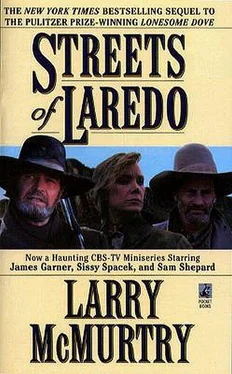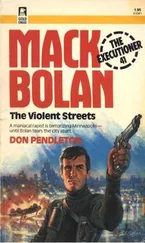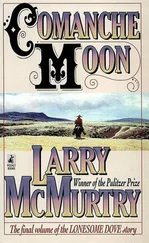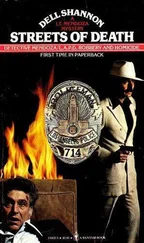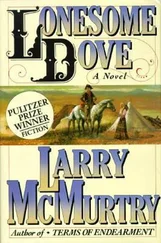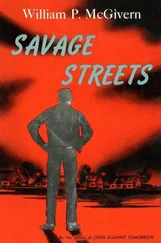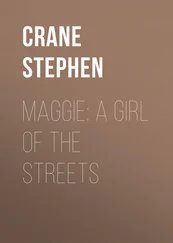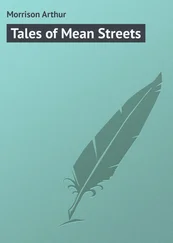Maria didn't ask Joey about the horse.
She went outside, to Rafael and Teresa. They were sitting with their chickens and goats, under a little tree. Rafael was chanting one of his melancholy songs. Rafael was a big boy, and much nicer than Joey, only Rafael was lost in his mind.
Maria grew sad, thinking about it. She gathered her washing and started to walk to the river.
Rafael followed, with two of his goats.
Teresa stopped to talk to an old woman who was grinding corn. Teresa was popular in the village. She was so quick and got around so well that some people almost forgot she was blind.
Her children dirtied a lot of clothes. It took Maria three trips to get all the clothes to the place where the women washed. That morning, because it was late, only one woman was there, old Estela.
Old Estela had borne thirteen children, and outlived them all. One drowned in a flood and the rest were killed wasdiseases. Old Estela had only a few clothes to wash because she had no family. Once she told Maria that she came to the river because she heard the voices of her dead children call, from the water. She had convinced herself that her children were not really dead. They lived in the river, with the frogs and the fish and the little snakes. God had given them gills, like the fish had, so they could breathe. Old Estela knew they were there; every morning, she heard them.
Rafael helped Maria with the clothes. There were one or two simple tasks he could do, and he always did them. He liked to beat the clothes against the rocks, and to spread them so that the cold water ran over them. Once in a while a shirt would slip away, before he could place a rock on it.
Then Rafael would have to wade in the water to retrieve it. The sheep, disturbed by seeing him in the water, would set up a bleating. Sometimes Teresa would follow them. She knew the path to the river, and all the other paths around the village.
Teresa and Rafael did not like to be apart too long. They needed one another. Teresa could not sleep, except with Rafael. He had become her eyes; she became his mind. It touched Maria, that her boy and her girl were so careful to help one another.
"Do you hear your children today, Estela?" Maria asked.
"I hear the girls," Estela said, in her tiny crack of a voice. "They are over by that bush, where the coyote drinks." Near the bush, the water made a rilling sound.
"The boys, I don't hear them," Estela said. "Maybe they have gone to Piedras Negras." "I think that's where my boy went," Maria said, thinking of the black horse and the silver spurs.
Joey Garza journeyed to the City of Mexico in search of a better gun. When he was seventeen, an old prospector named Lichtenberg had come through Ojinaga, carrying a little case made of fine leather, with a crest stamped on it in gold. Joey was interested in fine things.
He admired the little case, and wanted to know what was in it. Old Tomas, who had once worked for the German on one of his prospecting ventures, said it was where Se@nor Lichtenberg carried his rifle.
Joey thought that a gun carried inside a case would be useless when trouble arrived. If trouble arrived, it usually arrived quickly. The Apaches who bought him from Juan Castro could kill you several times, in several ways, while you were trying to get a rifle out of a leather case. Joey had seen them kill people who had their guns in their hands, but were too terrified to fire. Because they were terrified of dying, they died.
The old German was very tired, when he reached Ojinaga. He was weaving on his feet. He politely asked Maria for board, and he gave her a gold coin, which she accepted. Then he removed his high-topped boots and was soon asleep. He took no precautions at all with his possessions.
Maria had a husband then, Roberto Sanchez. He came home from the cantina to find that Maria had rented their bed. He took the gold coin from her, but raged anyway, about the loss of the bed. Due to a fear of scorpions, Roberto hated to sleep on the ground. He was a fool, Joey thought. Scorpions could come in a house and bite people, they often did. Roberto raged for a long time, but Maria finally persuaded him that renting the bed was a smart move. One night on the ground wouldn't hurt them. She herself would clean the ground, to make sure no scorpions were there to bother them.
Roberto Sanchez was still drinking tequila, but he finally stumbled after Maria.
Rafael, the idiot boy, was playing with a chicken behind the house while he sang a little idiot song. A sad tone came into his voice when he saw his mother go into the darkness. Teresa sat near Rafael. When she heard the sad note enter the song she scooted closer to Rafael and put her fingers to his lips, to feel from his breath what sadness he felt. She herself didn't care that her mother had gone out of the house. She heard her go, but for Teresa it only meant that she could whisper through the night, to Rafael, and not be scolded. Teresa loved whispering to her brother at night. In the darkness she felt that she and Rafael were the same. Neither could see, and it didn't matter that Rafael sang songs that had meaning only to him.
As soon as Maria and Roberto left, Joey took the little case into another room, where he lit a lamp and examined it carefully. It had a small lock, but he opened it with a piece of wire.
Inside the case, resting in velvet grooves, was a rifle, the most beautiful Joey Garza had ever seen. The barrel was heavy; it weighed as much as most rifles. In Joey's mind that gave the gun dignity. This rifle was not merely a gun; it was so beautifully crafted that holding it made him feel powerful.
The stock was of polished wood, and the trigger guards curved beautifully. The German rifle was the most desirable weapon Joey had ever seen.
He determined at once that he must have it, or one that was as good or better. If he had to kill the old German, he would do it, but he didn't intend to kill him right away.
Almost as fascinating as the rifle was a little spyglass that nestled in its own velvet groove. It had a fitting that attached it to the gun barrel. Joey attached it, and looked through the spyglass. Even in the dark room, lit only by the flickering lamp, he could see what the spyglass did. It brought the target near, even when the target was far. He slipped outside and practiced sighting through the spyglass, with only the moon and stars for light. He wished it were day.
At first light, he meant to take the gun and sight through the spyglass. Having the spyglass was like having a better eye. The rifle was so well balanced that Joey knew he could kill from great distances with it. He could lie on a roof in Ojinaga and kill gringos across the river in Presidio. If the wind was blowing strongly the gringos would never even hear the report of the rifle. Three gringos could be walking in the street, and in a second, two of them would be dead. The third would have no idea who was shooting.
Joey considered stealing the rifle, then and there.
He could leave and go where no one would ever find him.
He knew the mountains to the south, in the great bend of the river, and knew the Madre. He could live in the mountains for years, eating the roasts of fat mule deer. But the old prospector's rifle was the first fine gun he had ever seen. In the City of Mexico there were bound to be many, and perhaps some that were even finer.
He sat outside his mother's house until almost dawn, simply holding the gun in his hands. Then he detached the little spyglass, took the rifle apart, and put it carefully back in its case.
He felt divided; impatient, yet patient.
He wanted to take the rifle and go, but he also wanted to learn patience. Among the Apaches, the best hunters and the best man killers were the most patient men in the tribe. Though it was hard to wait, they waited. The best hunters did not take the first deer they saw; they waited for the fattest deer. They shot when they were sure, and Joey resolved to do the same. He would shoot when he was sure.
Читать дальше
